Affiliate disclosure: This post may contain affiliate links. Please see our Privacy Policy.
World War III is a terrifying prospect, but you never know when global tensions will reach the breaking point. Being prepared for war, regardless of the location or scale, will allow you to be better prepared for other emergencies as well.
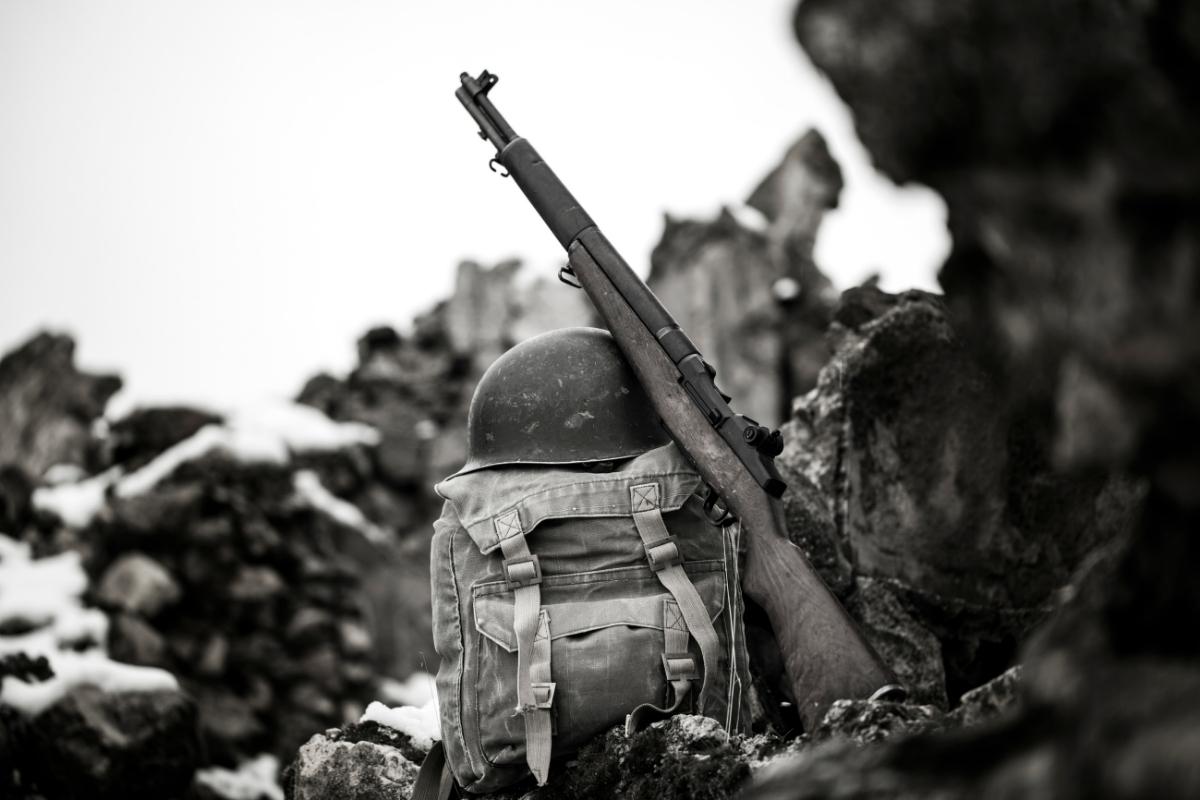
There’s a famous saying, attributed to Albert Einstein that more or less sums up the risks associated with WWIII:
“I know not with what weapons World War III will be fought, but World War IV will be fought with sticks and stones.”
With modern weapons arsenals, an all-out global conflict has the potential to be catastrophic, and many of the scenarios short of all-out nuclear war aren’t much better.
Assuming that no one wants to go down the road of “mutually assured destruction,” there will likely be escalating tensions for a long time.
In 2020 and 2021 we all became acutely aware of how fragile global supply chains really are. That’s when everyone’s still in theory playing well together and putting in their best effort to get supplies from point A to B.
Add in blockades, embargos, and sanctions to the mix, and even if there’s not an actual full-scale World War, we’re likely to see food and fuel shortages that are unprecedented in the modern era.
The added risk of cyber-attacks only heightens the fragility of the situation.
For now, let’s assume massive disruption to daily life, shortages, security threats, and other issues related to a massive global conflict short of all-out nuclear annihilation.
(If you’re specifically concerned about nuclear conflict, I’d suggest reading “Can you survive a nuclear winter” instead. Though quite frankly, the steps you take to prepare are quite similar regardless of the scinerio.)
How Will WW3 Be Different Than WW2?
While WWI and WWII were fought largely on the ground, in the trenches, the next global conflict is likely to be far less like “traditional warfare.” The high-tech nature of today’s military operations, not to mention the added sophistication of cyber warfare and targeted drone strikes means that anything’s a target.
Infrastructure is likely to take a huge hit, especially since it’s possible to disable anything from a power grid to a water treatment facility with a cyber attack from thousands of miles away.
Even if you’re not in an area of active conflict, you should expect:
- Global Supply Chain Problems, leading to shortages in every type of manufactured good. Even if we have the ability, in theory, to produce something, most manufacturing operations outsource a few components overseas. Those critical components, be they microchips, valves or a thousand other things mean that there’s no finished product.
- Food and Energy Shortages, especially in regions with limited domestic production. Gas and fertilizer prices are incredibly volatile, and conflict always shortens supply.
- Rationing has been necessary for past conflicts, and we’ve already seen the potential for rationing in care and medicine since 2020. As shortages become more acute, rationing is inevitable in everything from food to energy and medicine, especially since so much of each is produced overseas (energy and medicine especially).
- Disabled Infrastructure, either as a result of cyber attacks or critical parts not being available due to supply chain issues. This means anything from electricity, water, and waste treatment, to financial systems and hospital infrastructure. The threat of an EMP disabling electronics in a local or regional way is also very real.
The main difference here is the potential for extreme disruption in domestic infrastructure, the likes of which were not seen in WWII. Rationing and shortages are to be expected, but the potential for an interruption in basic services far from a warzone is very new.
Preparing for WWIII
The key to weathering any disturbance, no matter how large, is resilience.
Building resilience starts with preparedness, be it in terms of reskilling, building community support networks, or collecting emergency supplies.
Though it’s impossible to say exactly how life will be disrupted, it’s inevitable you’ll need to improvise to meet your family’s needs at some point. That’s true in the aftermath of a hurricane or natural disaster when infrastructure and supplies are in peril, and it’s even more true during a long-term global conflict.
The more prepared you are to meet your family’s needs for food, water, energy, health, and security, the more likely you are to survive and thrive during and after a conflict.
In the short term, just having tools and supplies on hand to get by will allow you to ride over supply chain shortages, and keep you both warm and fed if global supplies are hard to come by
In the long term, having a good survival library, with plenty of technical books on DIY skills will be vital for filling in gaps as various services are not available.
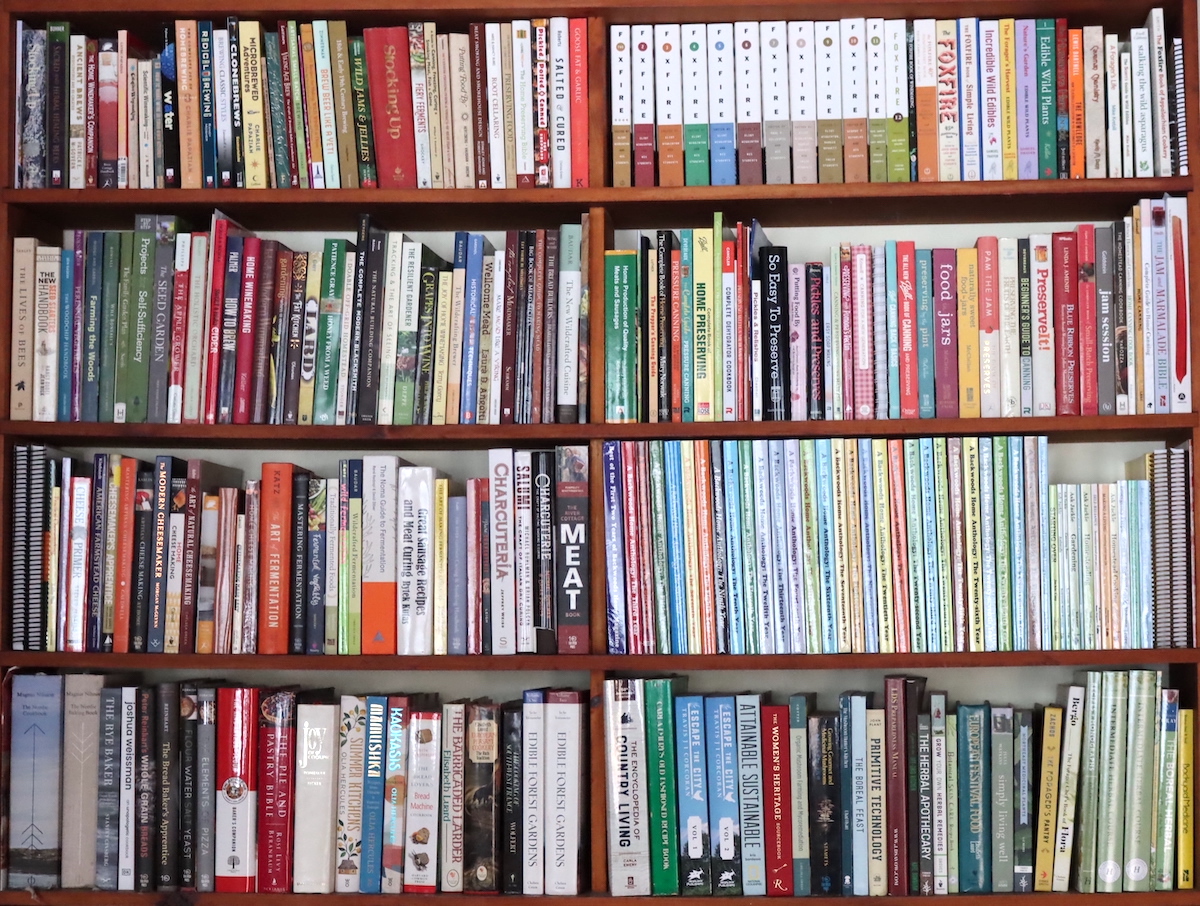
Food
The potential for massive global famine and food disruptions is very real.
That’s not just because so much food is imported/exported, but also because so much of food production involves energy inputs. Fertilizers are expensive and energy-intensive to make, and if natural gas pipelines aren’t running then there won’t be fertilizers for maintaining modern agricultural production levels.
Even if we could ship it, odds are we can’t produce it without expensive external inputs that just aren’t there.
Victory gardens and survival gardens will be important, but it’s incredibly difficult to grow all your calories yourself with minimal equipment. (You can read about our survival gardening real-life dry run if you’d like more specifics on the practical considerations.) It’s a lot easier to rely on stored food for bulk calories, and then supplement nutritionally with fresh garden produce.
So what should you store?
My family stores all of our bulk pantry staples in bulk. This includes flour, sugar, rice, and dry beans. When packed in 5-gallon buckets and a gamma seal lid, these non-perishables allow us to store an incredible amount of bulk calories in a relatively small amount of space.
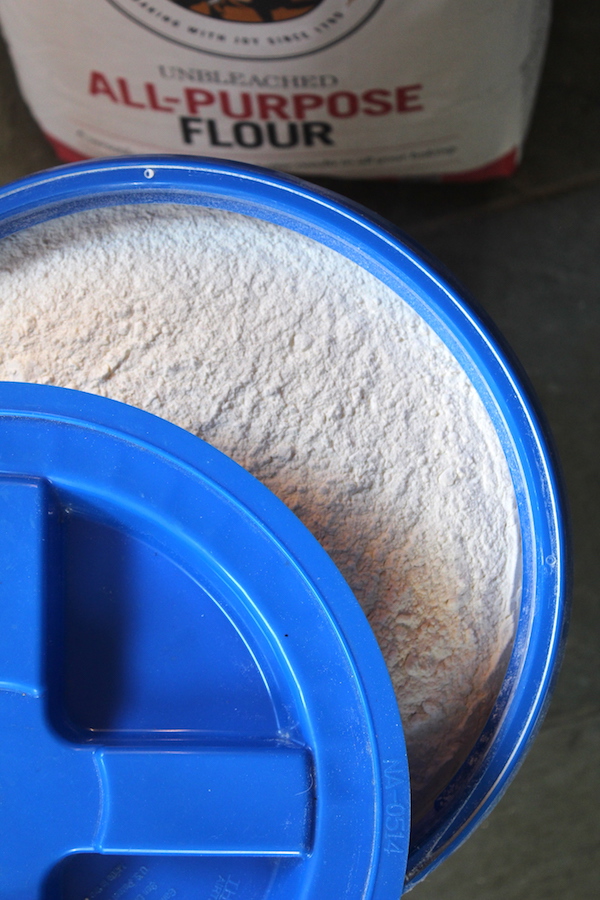
We cook all our meals from scratch, and I know how to turn those ingredients into literally hundreds of diverse meals with the addition of spices and a small amount of produce from the garden.
Add in shelf-stable versions of perishable ingredients, things like freeze-dried eggs and dried milk powder, and we’ve got a whole pantry at our disposal.
If you’re not a great cook, or you’re simply looking for an off-the-shelf solution, I’ve tried and reviewed food from every emergency food supplier on the market. They all sell freeze-dried emergency food that is easy to rehydrate and shelf-stable for at least 25 years.
If you want the quick version:
- Valley Food Storage has the best quality kits with plenty of variety, and a number of premade kits that are perfect for just in case.
- Nutrient Survival had the highest nutrient density and best-tasting food, but their options are a bit more limited since they’re a new company.
- My Patriot Supply has the best budget kits on the market, and if you don’t have a lot to spend they’ll get you through better than anyone else.
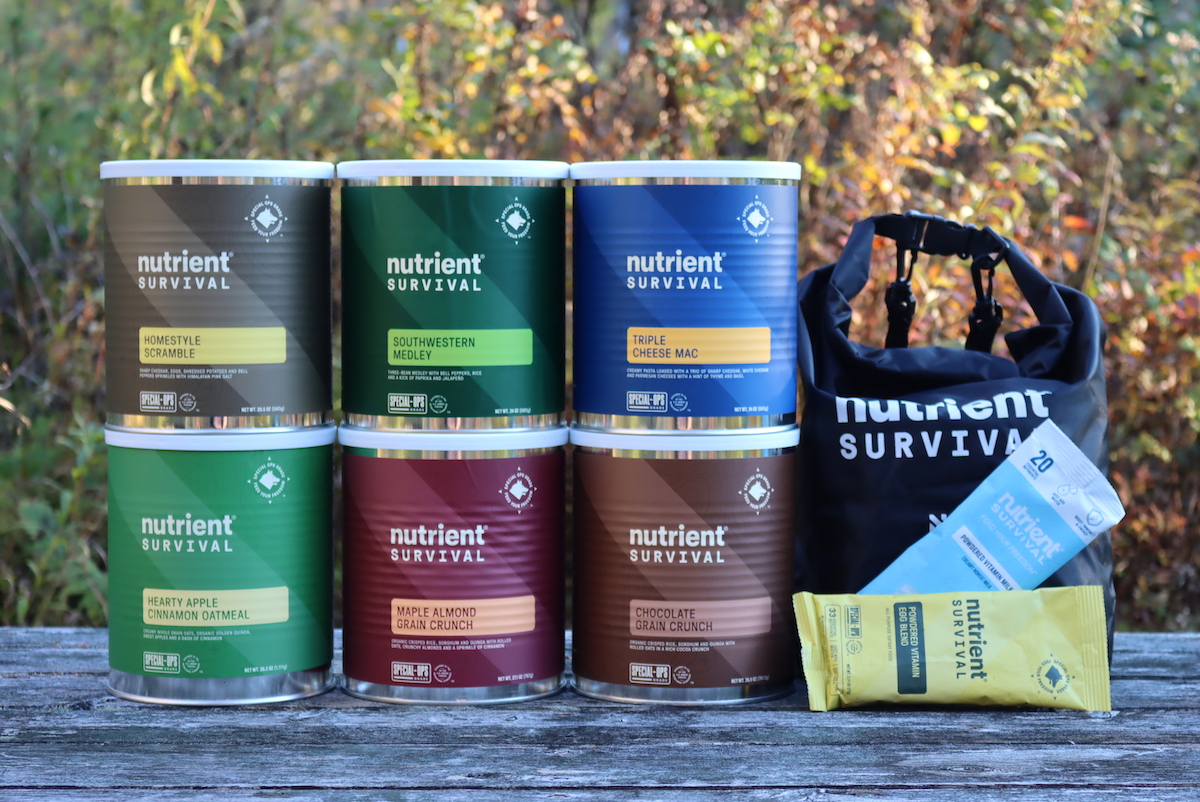
Food is by far the most important thing, given that agricultural productivity will be severely impacted by a global conflict.
If you do have the space and ability to supplement your food stores with homegrown produce, that will be incredibly helpful.
You can grow a substantial portion of your own food, even in small spaces. We have a garden tower unit and we use it to grow fresh greens year-round for our family of 4 in our attached greenhouse. They also have kits with lights for fully indoor growing.
We’re also able to grow microgreens year-round, as well as start all our own garden seeds indoors by using our homemade seed starting light rack.
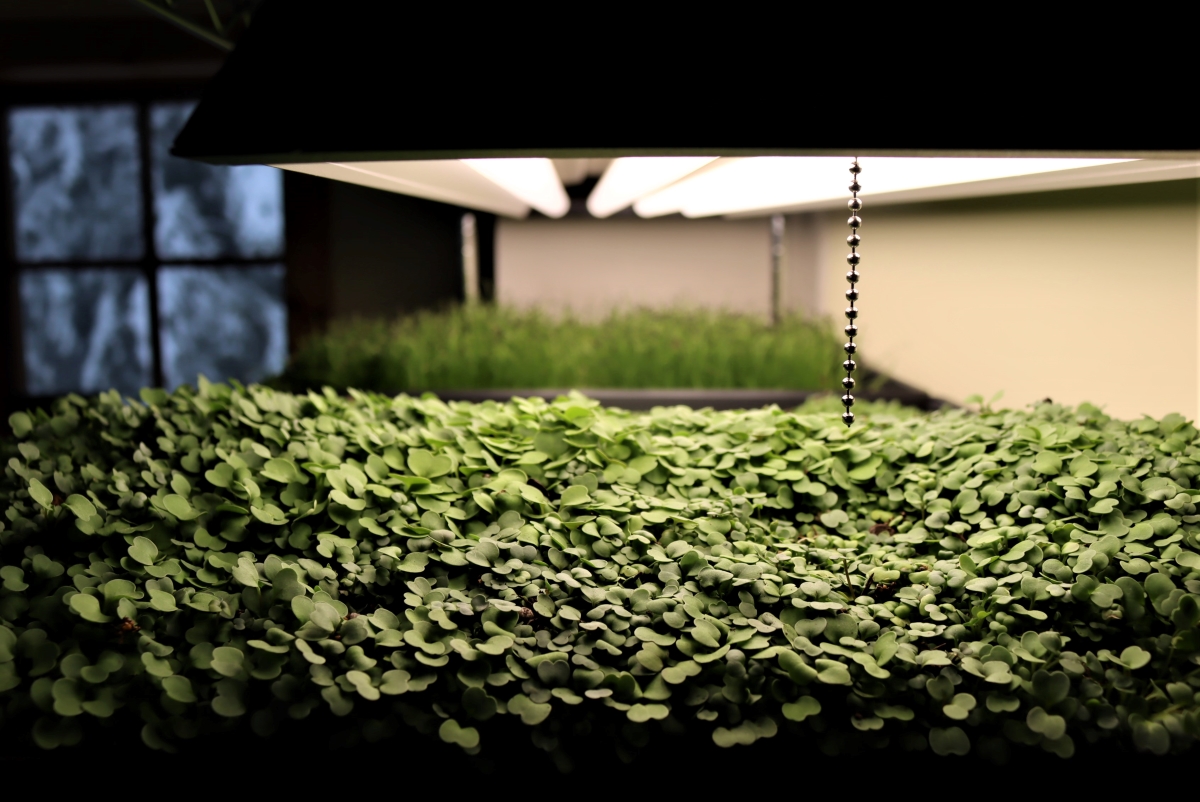
Water
We’re all familiar with boil water notices, especially in cities and suburbs when services get disrupted by emergencies (floods, storms, etc). Add in the threat of constant disruption from cyberattacks or grid-down scenarios (temporary or long-term), and you’ve got a recipe for water insecurity.
The ability to store water, and more importantly, filter the available water even if it is coming from the tap will be incredibly important.
We can water for storage, which works well for us. There are other bulk water storage options, too.
For the longer term, you’ll need to think about filtration, and there’s nothing better than a Berkey filter which works great for tap water now, and river/stream/lake water after an emergency.
This preparedness kit comes with food, water filtration, and emergency cooking equipment, so it’s a good one-stop shop to check all the boxes there.
(2024 Water Filter Update: Berkey is having supply chain problems, and they’re not readily available. Occasionally, they’re available through Pleasant Hill Grain and a few other suppliers, but not dependably. Consider an Alexapure Filter as an alternative, as they’re similar, and much more readily available these days.)
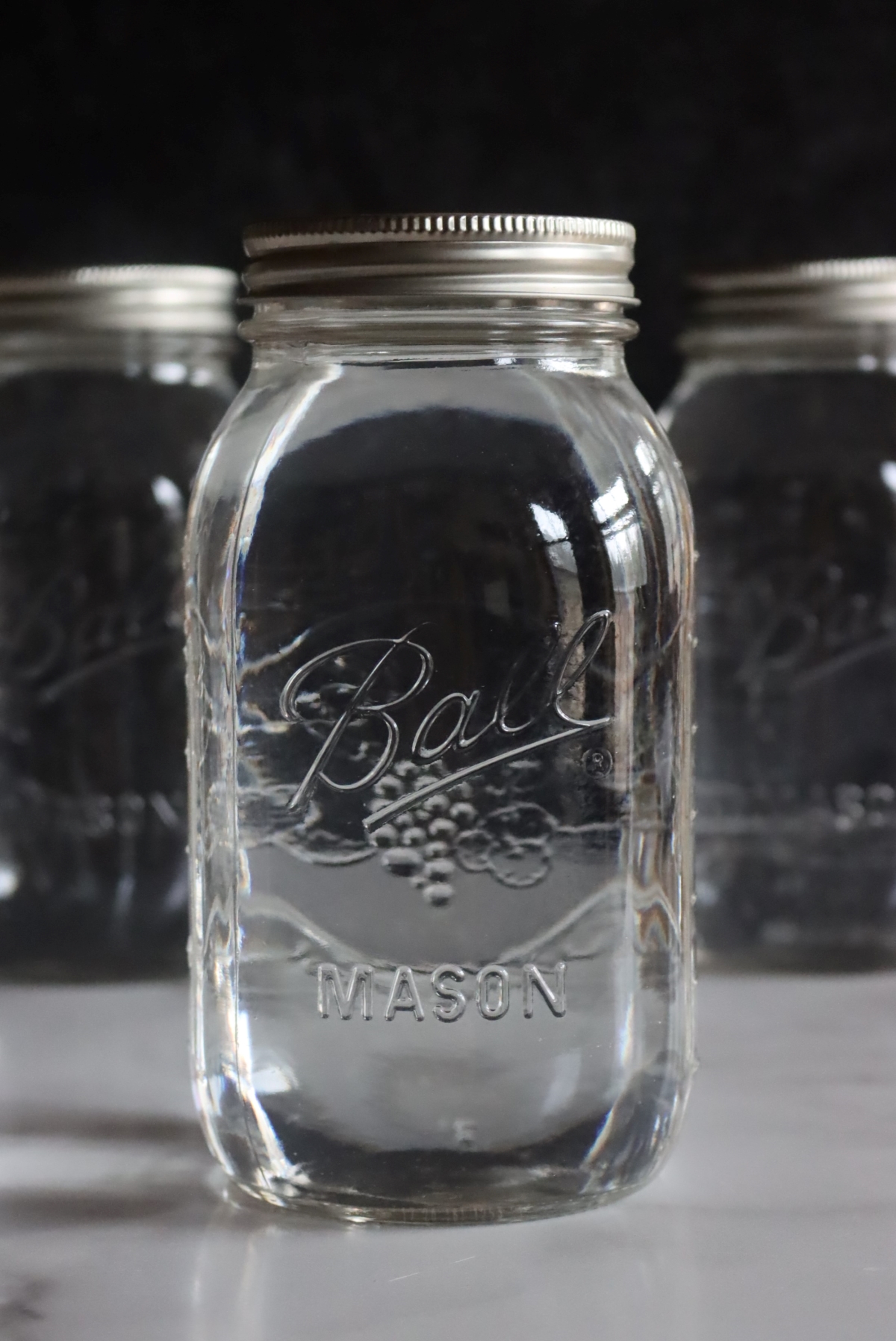
Sanitation
It’s possible that modern sanitation facilities may also be hit, meaning they won’t be available temporarily (or for weeks at a time potentially).
We use a pedal-powered off-grid washing machine, and it’s incredibly efficient and easy to use. It only takes a small amount of water per load, and it’s easily operated even by small children.
I’d recommend a composting toilet for waste, which will allow you to safely convert it from a potential health hazard to compost for growing food. They’re expensive, but a great all in once solution for dealing with human waste when systems are disabled.
The Humanure Handbook covers everything you need to know about safely treating and recycling human waste on a small scale, and it has DIY options for home composting toilets. If you’re looking for an inexpensive option, a bucket camping toilet will get the job done in a pinch, and it’s literally a few dollars.
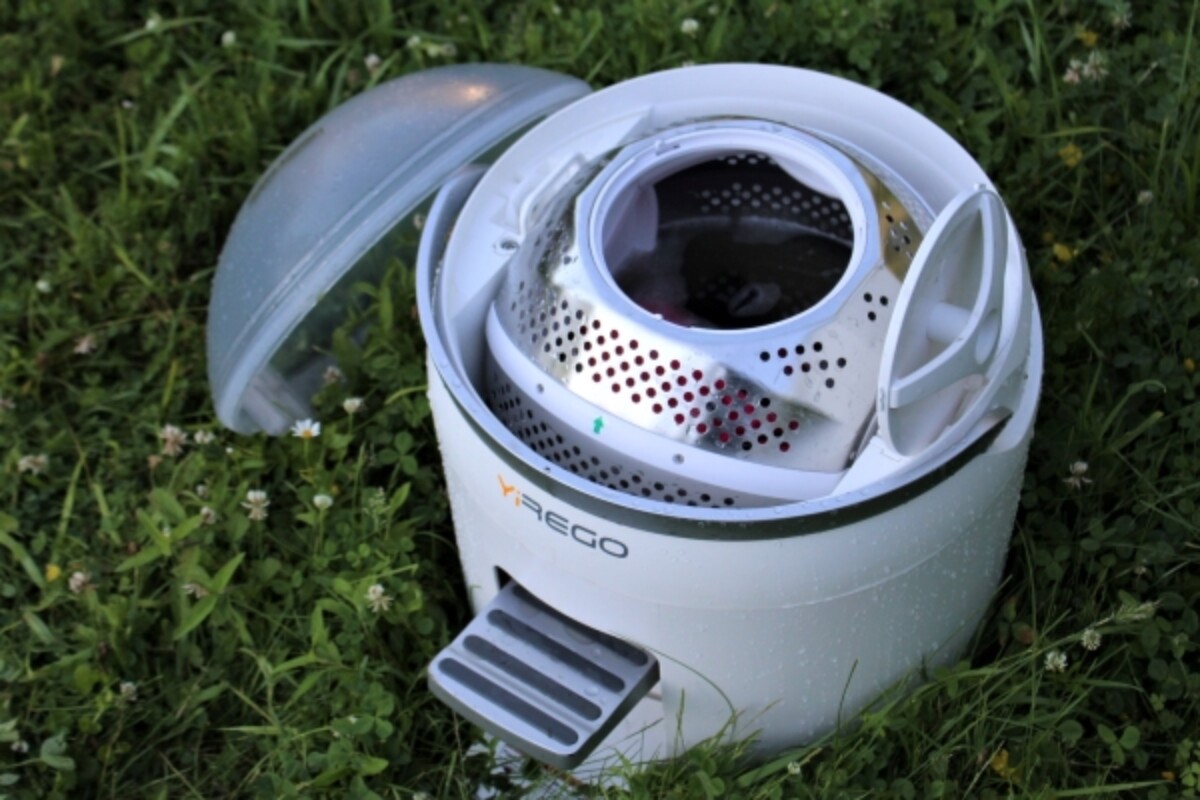
Medicine
In a global conflict, the need for medical care and supplies will rise dramatically, but there’s only so much supply. I’m not talking about major injuries here, but when hospitals are focused on acute cases more minor injuries are left untreated and can become can be life-threatening.
Without modern medicine, minor cuts can become infected, and it’s important to have basic medical supplies on hand to treat the common injuries that are bound to happen.
A good medical kit is essential, whether it’s a small everyday carry kit, all the way up to a long-term backwoods medical backpack. A little bit of antiseptic can be absolutely life-saving, and it’s inexpensive to buy ahead of time.
Beyond first aid, the main causes of death 100 years ago are all now easily prevented with modern antibiotics. They’re hard to come by short of a trip to the emergency room, but there is one company that prescribes emergency antibiotics for anyone hoping to prepare in advance. A single kit comes with a full course of the five most common types of antibiotics, as well as a book explaining their use.
Things like animal bites, bladder and kidney infections, diarrhea (from contaminated water), pneumonia, and tetanus can all be fatal, but they’re easily treated with simple antibiotics.
Energy
While maintaining food, water and sanitation are first-level concerns, energy is important too.
Energy includes everything from energy to cook your meals and stay warm when infrastructure is down, all the way down to charging devices so you can stay informed about the situation outside of your home.
We have a battery bank and solar panels on our homestead, but we also keep a Jackery portable power bank on hand as a backup. They come in multiple sizes, but we have the 1500 model which holds enough charge to devices dozens of times and cook with small appliances for days on end. (Smaller ones are less expensive, but also hold less charge.)
When the grid is up you can charge it and then store it until needed. It can be charged with portable solar panels that you can buy with it.
The portable models are handy because even if you have a rooftop off-grid solar setup the pannels can get encased in ice in the wintertime. Portable pannels are incredibly useful, as they can be brought in and out for charging to keep them in peak condition.
If you’re looking for an easy plug-and-play whole house backup system, the ecoflow delta is a good option. It’s a lot like our off-grid battery system, but it’s designed to interact well with a normal household electrical panel (instead of requiring all the strange wiring an off-grid setup needs).
For grid-down cooking, something like a jet boil camping stove that uses butane canisters is what we use when camping. It’ll boil water in under 3 minutes, and a single 16 oz fuel canister can run for well over 2 hours. It’s good for short-term emergencies, but it’s hard to store enough fuel for more than a few days worth of cooking.
A small rocket stove that efficiently burns twigs and barks like this one from solo stove will also do the trick, and fuel is easier to come by in an ongoing way.
Biolite makes a camp stove that converts heat energy to electricity to charge devices while it burns, so it’s working double duty. It’s a good solution that will allow you to both cook your food with random woody debris from the yard, all while charging headlamps and devices to stay on top of the situation.
Security
I know it’s not something people want to talk about, but civilians living in a war zone will quickly learn the value of a little personal security. Arms were quickly distributed to civilians in Ukraine within days of the invasion, and it’s amazing what a determined population can do given the right tools.
If you haven’t already invested in a means of defense for your family, there’s no time like the present. I imagine you’d be better off with one of these in your back closet, regardless of the conflict. (Maybe two or three of these, wouldn’t hurt either…)
While the authorities will almost certainly distribute arms if necessary, they’re not all that helpful if you haven’t practiced with it ahead of time. Having something on hand now will give you the opportunity to familiarize yourself with the tool before it’s needed.
If you’re in an area where that’s not an option, for legal, political, or practical reasons, then there are other options available.
Air rifles are legal in many places where other things aren’t, and they’re far more advanced these days than the simple pellet shooters of your childhood. Some hunting air rifles can even take down big game, and ammo is a lot easier to manage since it’s propelled by pressure instead of powder.
Beyond that, crossbows are relatively easy to operate and infinitely re-loadable.
Both are a great option for stocking your freezer during supplies shortages, not to mention their utility for self-defense.
Preparedness Resources
Looking for more resources to boost your resilience in uncertain times?
- The Best MREs (Meals Ready to Eat)
- Choosing a Survival Seed Bank
- How to Freeze Dry Food at Home
- Best AA Flashlights (Detailed Review)
- Beginner’s Guide to Lockpicking
- How to Install a Driveway Alarm
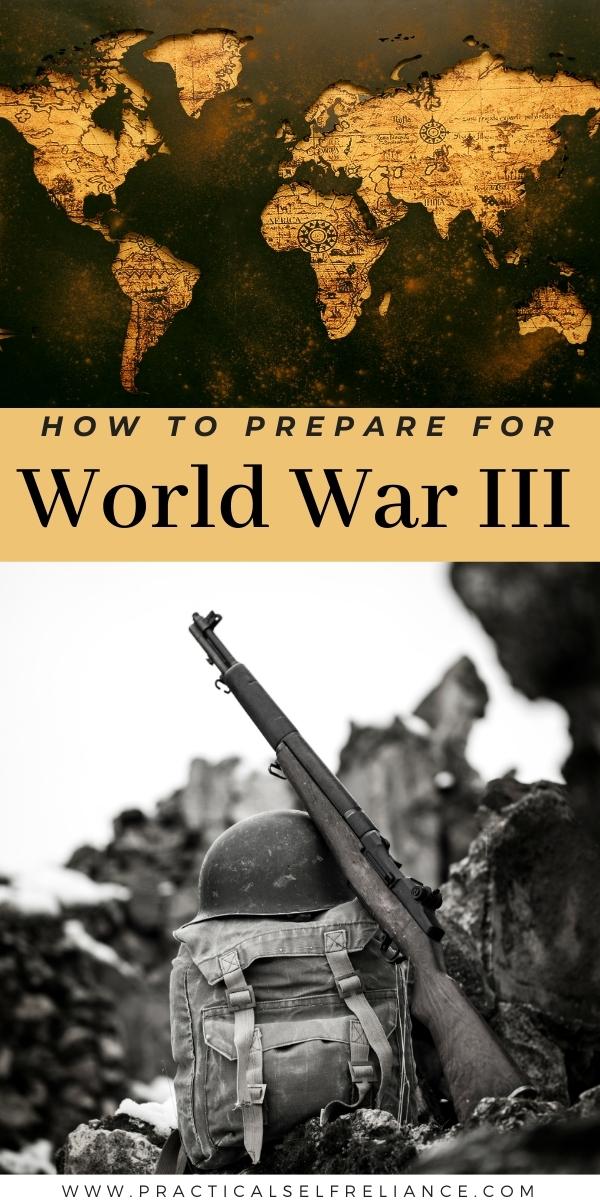
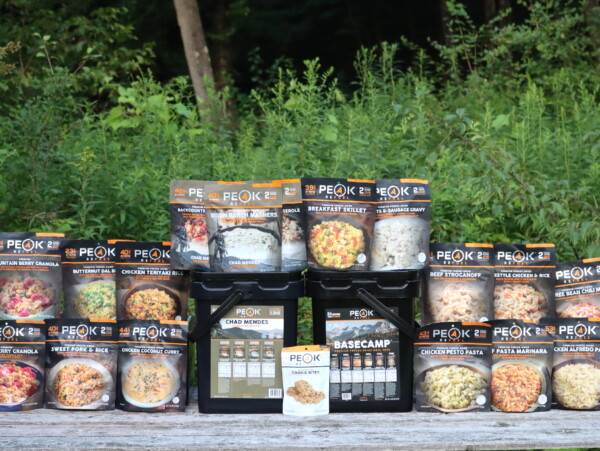
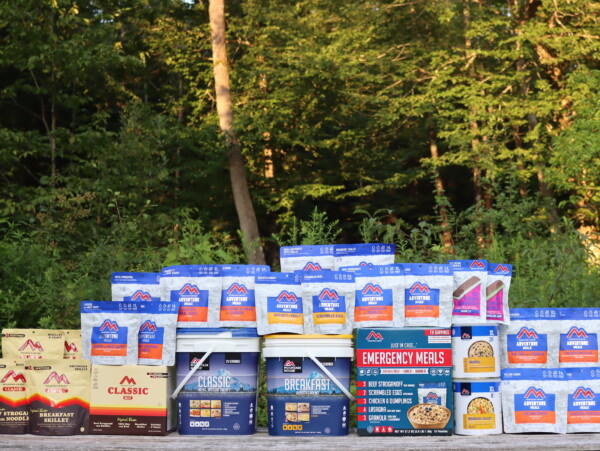

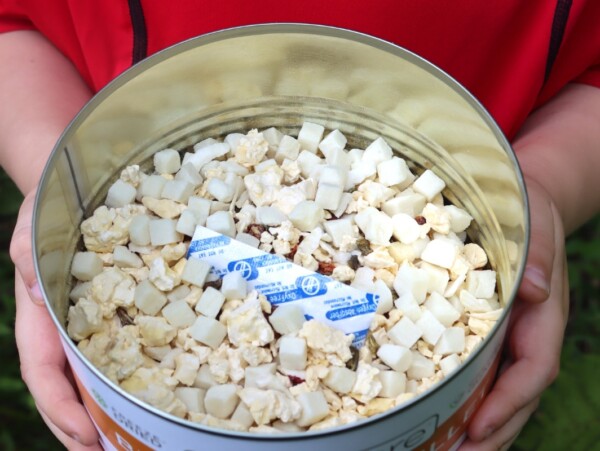









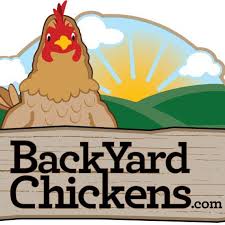
We are in a food famine already. It’s not because of nature. This is a new kind of drought. “Food famine”. Other Countries are not going to be importing to the United States. Because of The “United States import taxes” The store shelves will be empty with in the next few weeks, . The stores don’t have anything to restock shelves. There will be some resources but Items and Food is going to decrease on stores.Shelf’s , estimate 60 percent, store shelves will be less than halfway full .
Sincerely
Rose Ferguson
The odds of America being involved in a third world war are very unlikely. If it does happen; it might involve atomic weapons. So it won’t be a long one.
That pretty much sums it up.
Thanks for the great resource. I would add a few more things to it – Flashlight, Pepper spray, 2 way radio, gold and silver coins and some entertainment options as well like table games, books, etc.
Good points!
Radiation detectors should be available to measure the number of rads in your space. To prevent excessive radiation, one should wash off any fallout, and put on “clean” clothing.
My best advice is to have a community. People you can rely on and work together with against a common enemy. Get to know your neighbors. Build friendships with them, because if SHTF, and you can’t drive, they are the ones you will be stuck with.
The best off grid toilet to buy is one with a built in manure incinerator. The incinerator is powered by a car battery. I’ve seen one advertised in mother earth magazine’s classified section.
Thanks for sharing.
If you live in an area were it snows heavily every winter; a composting toilet is a bad choice. What will you do if your toilet’s collection tank freezes up?
I don’t really understand this question, and I think maybe you don’t know how modern composting toilets work? We live in Vermont, so plenty of snow and very cold winters. Modern composting toilets are indoors and there’s nothing to freeze up unless your house is well below freezing for extended periods, in which case your health is going to have an issue first…even then, it’s still stay warm due to the composting action. The last thing to freeze in your house is going to be the composting toilet. Even if it did freeze into a brick because your house was -20 degrees for a week, it’d thaw out and be fine once things went above freezing.
Outdoors, if you’re using an outhouse type setup outdoors and composting that way, that’s used all over the world and freezing isn’t an issue there either?
I have come to the concluion if is time to prepare for ww3
I love that your first suggestion is a solid survival library! Thats one of the things that my husband and I have prioritized in addition to food and tools. I don’t know many people who have included that, let alone prioritized it. We also find it important to include the books we would be sad to never get to read again or we would be sad to not have a copy for our children to read when they are old enough if we didn’t own it. Intellectual stimulation is important to us.